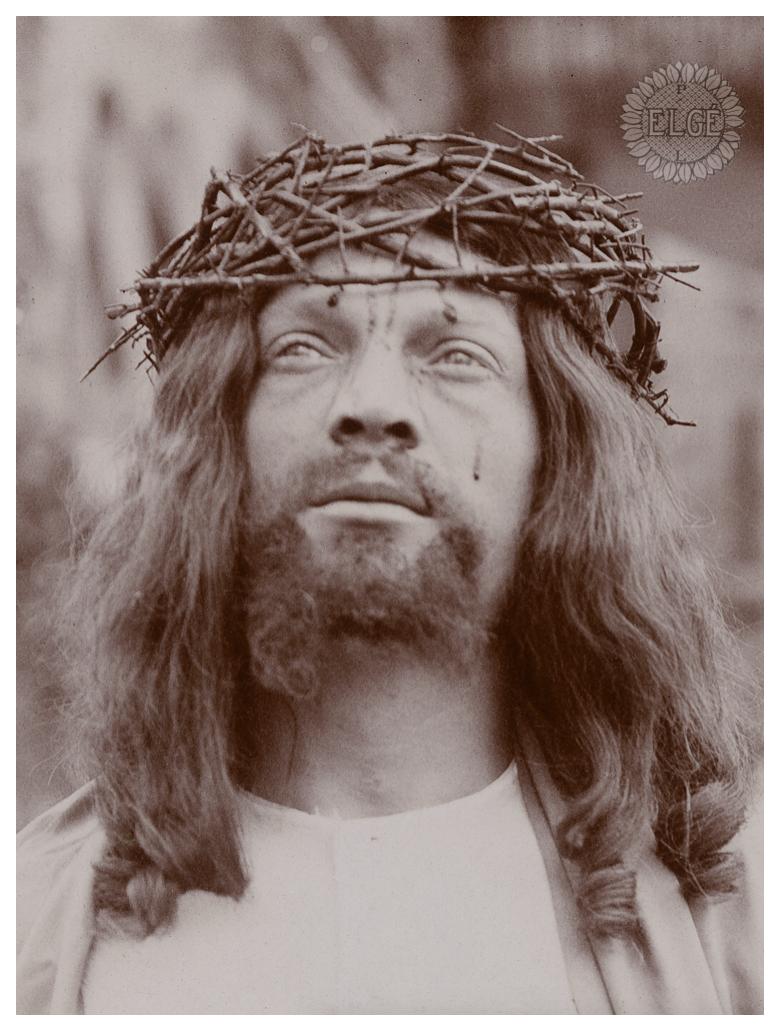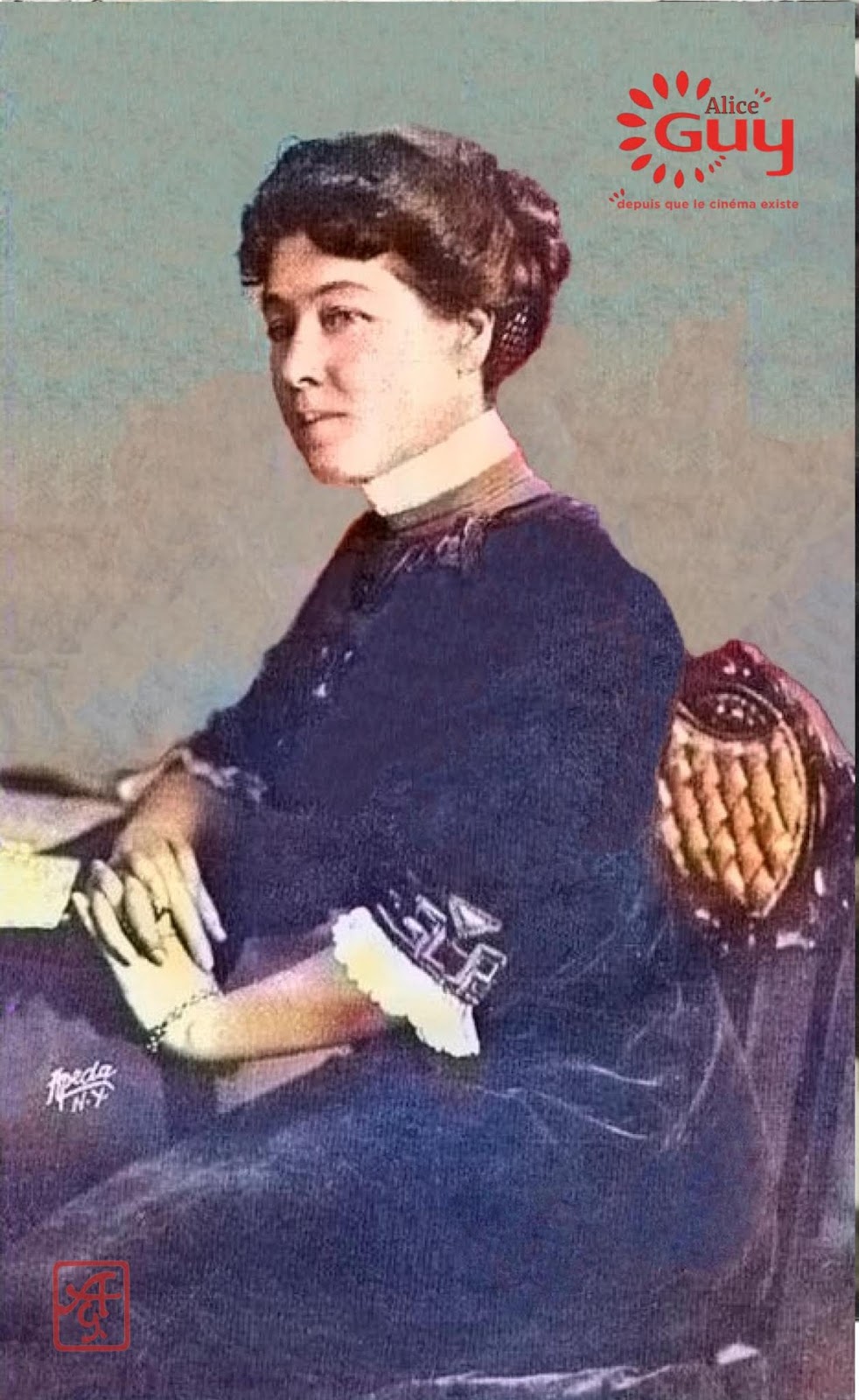*Be Natural ! ©riginal Story of Alice Guy Blaché by Herself
 |
| *Be Natural ! ©riginal Story of Alice Guy Blaché by Herself |
 |
| *Be Natural ! ©riginal Story of Alice Guy Blaché by Herself |
*Be Natural ! ©riginal Story of Alice Guy Blaché by Herself
 |
| *Be Natural ! ©riginal Story of Alice Guy Blaché by Herself |
When creating a who’s who list of the early days of film, the list is
dominated by men – Cecil B. De Mille, D. W. Griffith, Louis B. Mayer.
But there was an obscured hero of cinema’s early years making film
alongside those males –
Alice Guy-Blachè.
In 1896, Guy-Blachè became the first female director, screenwriter, and
producer. Regardless of gender, Guy-Blachè left a legacy of innovation
in film. Her 1896 release,
The Cabbage Fairy,
was one of the first narrative films ever made. Guy-Blachè
experimented with hand-tint colorization and even directed with one of
the first sound machines decades before
The Jazz Singer was released in 1927. Among her 22 feature-length films was
The Lure—a
film that made an impact on the city of Winchester by sparking a
censorship debate, a conflict that found its way to the local courts in
the fall of 1914.
The Lure, adapted from a play by George Scarborough, follows
the lives of two young women lured into prostitution and enslaved in a
house of ill repute. One young woman is enticed away from a fashionable
dancing school by a dashing stranger. The other young woman, working in a
department store to support an invalid mother, is lured by the promise
of “easy night work.” The two ladies are shown being mistreated and
suffering forced sexual advances in a brothel; however, as the film
nears its end, the women are rescued by a private detective and good
ultimately triumphs.
On 21 October 1914, Fred and Herman Hable, theater managers, rented an auditorium in Winchester for a showing of
The Lure,
but Dr. Julian H. Ward, mayor of Winchester, had other plans. Without
having seen the movie, Ward believed the film was indecent and immoral
and authorized the police force to forbid its showing. The Hable
brothers, having invested their money in leasing the public theater and
paying licenses and state fees, pled their case to the mayor. The
National Board of Censors even reviewed the movie and found nothing
objectionable in it, but despite the Hables’ protestations, Ward
prevailed in shutting down the theater. On 29 October 1914, the Hables
responded by filing suit in the Corporation Court of Winchester to
obtain an injunction to overturn the mayor’s order.
The case file of
Fred H. Hable and Herman H. Hable vs. the Mayor of Winchester,
1914-005,
includes correspondence and affidavits voicing either support or
opposition for the showing of the film. Since the Hables had shown the
film in many cities (including Richmond, Newport News, and Baltimore)
before coming to Winchester, they submitted correspondence from
officials from those cities as evidence that the film was not considered
indecent. J. W. Sibert, a Winchester resident, submitted a letter to
Mayor Ward, dated 27 October 1914, detailing his opposition to the
mayor’s actions. Sibert wrote, “I regard this film no worse in its
pictures and ideas than many others that have been shown, which have not
been objected to or prohibited in Winchester.” Sibert was of the
opinion that “the whole story told by the film teaches a good lesson of
warning to innocent and inexperienced girls who go to large cities and
there meet dangers and temptations that they have never known before.
The moral of the story is a good one, and the picture is a beautiful one
in the way it ends.”
Thomas F. Dean, manager of the New Academy of Music in Baltimore, also voiced support for
The Lure
claiming that it contained a “strong moral lesson.” Dean submitted a
letter to the court, writing, “I saw it myself, and thousands of
Baltimoreans of both sexes and all ages also saw it, among them were
many of our most prominent, intelligent, and refined citizens.” Dean
also believed that the story ended “beautifully in wrong-doing being
punished and goodness and right prevailing.”
Not everyone had such glowing recommendations for the film. Robert G.
Gray and George H. Heist, viewers of the film, considered the picture
“obscene” and opposed the film showing in Winchester. Their joint
affidavit includes a descriptive review of every scene that they found
objectionable including the “interior of a bawdy house” and language
that clearly implied that one character “shall sell her body to men for
money.” Mr. Gray and Mr. Heist’s opinion of the end of the movie
differed starkly from Mr. Dean’s expressed “beautiful” end: “…of course
both girls are rescued in the end and virtue triumphs as it usually does
in plays and pictures whose filthy scenes and suggestive lines are
designed to attract the curiosity of the public.”
The mayor submitted little in evidence to support his cause except
for a legal citation that stated his powers as mayor allowed him to
“stop publishing or exhibiting an obscene picture.” The judge offered
his opinion that any decision to grant the injunction against the
mayor’s actions would be an assumption that the court was ruling on
whether the movie was obscene or not since the ruling would allow the
movie to be shown. The judge indicated that the case was not one for a
court of equity. Unfortunately, we will never know if the citizens of
Winchester were exposed to the allures of
The Lure, as on 11 November 1914 a motion to dismiss without prejudice was submitted to the court by Fred and Herman Hable.



















































